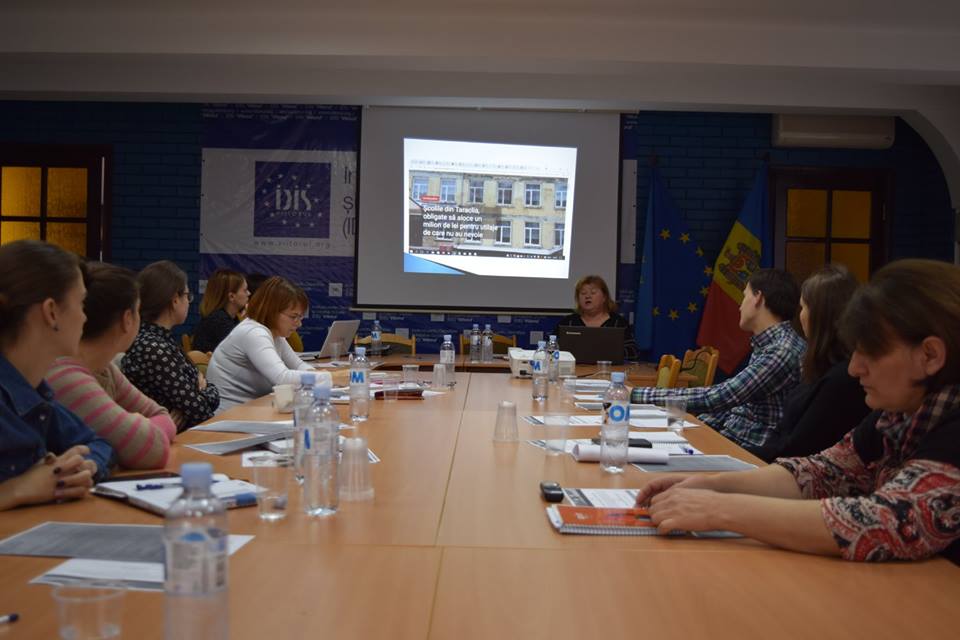
Civil society monitoring and publicity investigations have revealed multiple violations, frauds, and corruption. The experience of some organizations and journalists on the monitoring of public money shows that monitoring public money has a positive impact on good governance, primarily by putting public pressure on authorities and making them accountable. It is the generic of the 12th Training for Civil Society Representatives in the framework of the project "Innovative Improvements in the public procurement system of the Republic of Moldova through inclusion, creativity and compliance practices", implemented by IDIS "Viitorul", with the financial support of the European Union.
Public money reaches the accounts of private companies as a result of auctions for the procurement of goods and services, and economic agents who get contracts with some public authorities make donations to political parties from which the managers of the public institutions that have organized the auctions are promoted.
Cornelia Cozonac, director of the Journalism Investigation Center, said that economic agents who are in charge with state institutions make donations in the election campaign and throughout the year. One example was the drug scandal of 2015 when a third of health auctions went to a single company, Dita EstFarm. "The Medicines Agency decided to include the company in the list of bans to participate in public auctions by March 2018 but was removed from this list in just four days, based on a court decision. Meanwhile, he managed to win 16 auctions, but also to escape the 14 million lei sanction imposed by the Competition Council for abuse of dominant power found in the drug crisis".
As regards the good execution of the works in the procurement contracts, Oleasea Stamate, chairman of the Association for Efficient and Responsible Governance, stated in the training that the large contracts do not stipulate the performance guarantee or be paid before the works are completed. "The good/work guarantee - is a selection criterion, ie if the bidder does not offer at least the guarantee stipulated in the tender documents, he is disqualified and his offer no longer passes to the bid evaluation stage".
She suggested to those who monitor the procurement process to draw attention to the content of the specification and how appropriate the requirements are, the presence of all the documents in the tender specifications, the content of the winning bid and the procurement contract. "The stage of implementation of the contract is important, therefore, the need for increased attention and in the case of finding the irregularities in the file or implementing the contract, the contracting authority, the Public Procurement Agency, the Court of Accounts, the Prosecutor's Office must be notified.
Civil society representatives who participated in training said that they often face limited access to information on a particular procurement or procurement dossier. The contracting authorities invoke various reasons not to provide the information requested under the legal framework for information and public procurement.
For further details, please contact the press officer, Victor URSU, at the following address: ursu.victoor@gmail.com or at 069017396.